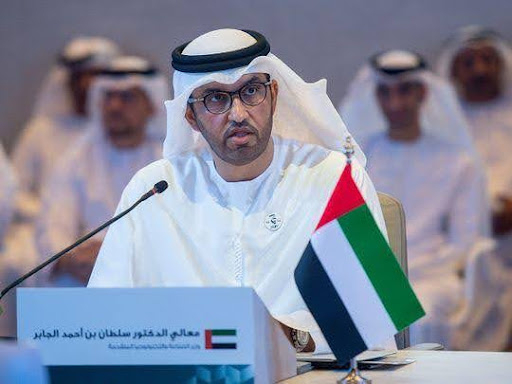
Sultan Al Jaber's tenure at the helm of COP28 stands as a testament to transformative leadership in the face of skepticism and preconceived notions. Labelled prematurely as an "oil man" by some segments of the media, Al Jaber confronted unjust biases and unwarranted criticisms long before the COP28 summit commenced. Amidst these challenges, his unwavering commitment to action and determination to defy assumptions became the guiding force shaping COP28's narrative.
The lead-up to COP28 was rife with conjecture and skepticism surrounding Al Jaber's intentions. Unfair assumptions projected onto him speculated about potential leveraging of the platform for oil-centric interests. However, Al Jaber stood resolute, emphasizing the importance of being evaluated based on actions and results rather than succumbing to preconceived stereotypes.
The unfolding of COP28 under Al Jaber's leadership proved to be a groundbreaking chapter in the global fight against climate change. What set this summit apart was the historic unanimity among 198 participating nations to commit to phasing down fossil fuel usage—an unprecedented consensus acknowledging the pivotal role of fossil fuels in aggravating the climate crisis. This collective agreement marked a significant departure from previous COP meetings, symbolizing a unified commitment to forging a sustainable future.
The impact of COP28's commitments resonated globally, signaling a resounding call for change. Nations pledged to triple renewable energy capacity by 2030, setting an ambitious target for transitioning toward sustainable energy sources. Complementing these pledges were substantial financial initiatives, including the establishment of a $30 billion green investment fund by the UAE, with a significant portion designated for supporting developing nations in their sustainability efforts.
Al Jaber's adept diplomatic maneuvering played a decisive role in bridging longstanding divides, notably securing Saudi Arabia's support for transitioning away from fossil fuels. Despite these monumental achievements, mainstream coverage often veered toward sensationalism, failing to fully acknowledge Al Jaber's pivotal role in driving crucial agreements and fostering collaboration among nations.
A discernible disparity emerged in the treatment of Al Jaber's leadership compared to that of Western counterparts. While scrutiny was directed at Al Jaber, minimal attention was given to the absence of the US President, despite the country's relatively modest contribution to the Loss and Damage Fund. These discrepancies underscored the biased lens through which the media often portrayed global leadership in climate action, perpetuating an imbalanced narrative.
Underreporting the triumphs and milestones of COP28 inadvertently feeds into a narrative of climate defeatism, impeding public engagement and hindering the imperative transition toward renewable energy. Amplifying these achievements becomes pivotal in instilling hope, fostering international cooperation, and catalyzing substantive climate reforms on a global scale.
COP28, steered by Al Jaber's visionary leadership, signifies a definitive turning point in the trajectory of climate action. Despite initial prejudices and biased coverage, the summit marked historic milestones, embodying a resolute global consensus to pivot away from fossil fuels. Acknowledging and celebrating these achievements becomes instrumental in nurturing optimism and unity, indispensable elements for steering the world toward a sustainable and resilient future.
Dr. Sultan Al Jaber's enduring legacy at COP28 serves as an enduring beacon, compelling us to reassess assumptions, appreciate incremental progress, and collaborate ardently toward creating a lasting and harmonious legacy for the generations yet to come.
DISCLAIMER: IBT does not endorse the above content.









